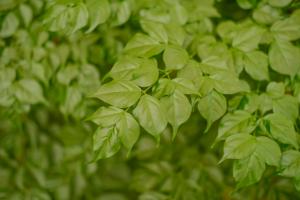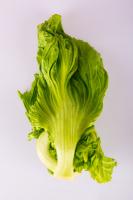Introduction
Plant tissue culture refers to the technique of cultivating plants under artificial conditions in a controlled environment. This technique is widely used in the field of agriculture, forestry, horticulture, and plant breeding. The main aim of plant tissue culture is to propagate plants from a single cell or tissue, in a sterile environment, and to produce genetically identical plants.
Techniques of Plant Tissue Culture
There are mainly three techniques of plant tissue culture, including meristem culture, callus culture, and suspension culture.
Meristem Culture involves the culturing of the apical meristem of the plant. It is the most preferred technique for the propagation of plants as it helps to produce virus-free plants.
Callus Culture involves the cultivation of undifferentiated plant cells, obtained by cutting the plant at the node. Callus culture is utilized for the production of secondary metabolites and somaclonal variation.
Suspension Culture refers to the cultivation of undifferentiated cells in liquid media under constant agitation. Suspension culture is utilized for large-scale production of plant cells, production of plant-based biofuels, and secondary metabolites.
Applications of Plant Tissue Culture
The applications of plant tissue culture are vast and varied. It is mainly used for plant propagation and micropropagation. Moreover, it is used for the production of pharmaceuticals, biofuels, and secondary metabolites. Plant tissue culture is also used in plant breeding as it helps in developing new plant varieties. In addition, it is utilized for conservation of endangered plant species and germplasm preservation.
Advantages of Plant Tissue Culture
The advantages of plant tissue culture are numerous. It helps in the production of healthy and genetically identical plants, which can be grown in any environment. Moreover, it helps in the production of plants on a commercial scale, which is not possible with conventional methods. The technique is also useful in producing plants free from diseases and pests. The production of secondary metabolites, pharmaceuticals, and biomass is also enhanced through plant tissue culture.
Disadvantages of Plant Tissue Culture
There are a few disadvantages of plant tissue culture as well. The production cost is high, and it requires skilled personnel and a sophisticated infrastructure. Moreover, the technique is not useful for all plants, and some plants may not respond to the technique. There is a possibility of somaclonal variation, which can cause adverse effects on plant growth and development.
Conclusion
In conclusion, plant tissue culture has revolutionized the field of agriculture and plant breeding. The technique has numerous advantages, including the production of genetically identical plants, production of secondary metabolites and biofuels, germplasm preservation, and conservation of endangered species. However, there are certain disadvantages associated with the technique, which should be taken into account. Plant tissue culture is an important technique that has expanded the scope of and diversified plant breeding and related industries.

 how many times do yo...
how many times do yo... how many planted tre...
how many planted tre... how many pine trees ...
how many pine trees ... how many pecan trees...
how many pecan trees... how many plants comp...
how many plants comp... how many plants can ...
how many plants can ... how many plants and ...
how many plants and ... how many pepper plan...
how many pepper plan...






























